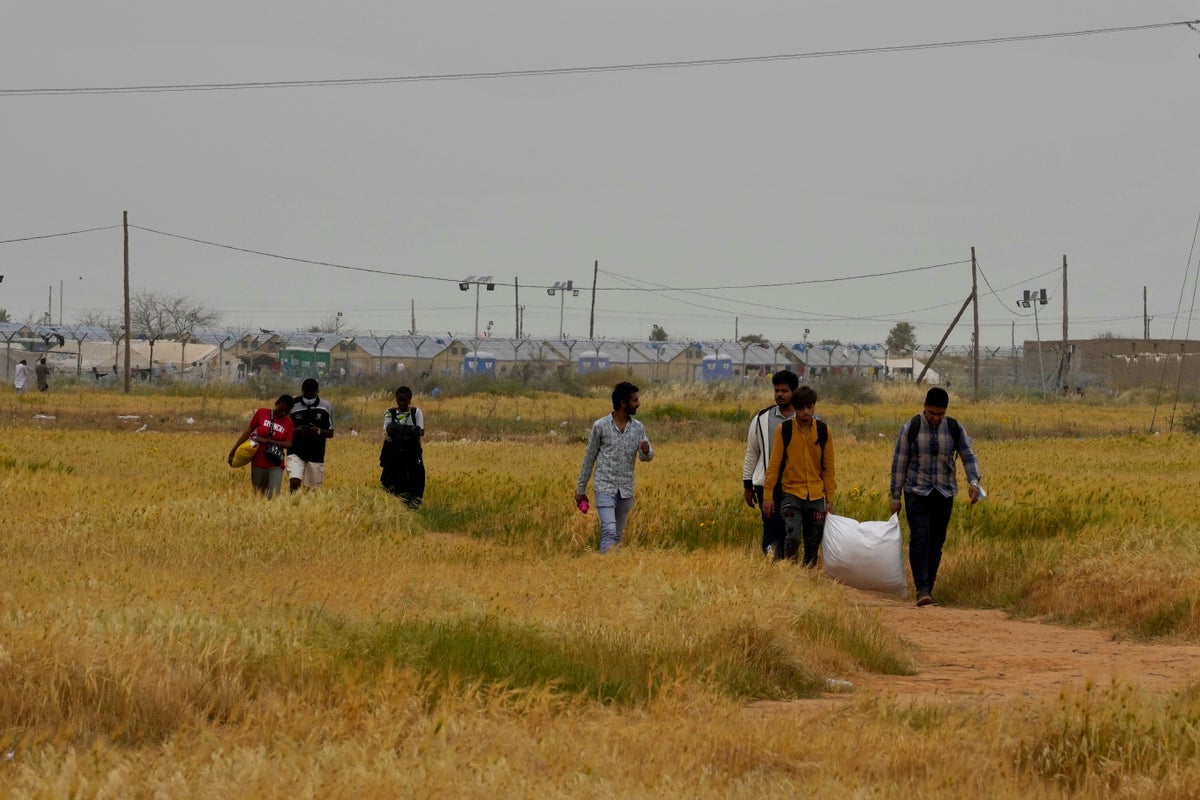
The United Nations refugee agency said Friday it was “extremely concerned” over the return of more than 100 Syrian nationals from Cyprus to Lebanon without being screened to determine whether they need legal protection and who may be deported back to their war-wracked homeland.
The UNHCR office in Cyprus said deportations and transfers between states “without legal and procedural safeguards for persons who may be in need of international protection” are against international and European law.
Such transfers could result in people sent back to a country where “they may face the risk of persecution, torture, cruel, inhuman or degrading treatment or punishment and other irreparable harm,” the agency told the Associated Press.
The 109 migrants had all reached Cyprus aboard three separate boats between Jul. 29-Aug. 2 before being returned by boat under Cyprus police escort.
The Cyprus government said such returns are being lawfully carried out in line with a bilateral agreement the island nation and neighboring Lebanon signed in 2004.
According to senior Interior Ministry official Loizos Hadjivasiliou, the agreement obligates Lebanon to prevent and stop illegal border crossings and illegal migration of individuals who depart from Lebanon.
Hadjivasiliou told the Associated Press these individuals are returned to Lebanon, which is deemed safe and where they enjoy benefits afforded to the hundreds of thousands of refugees in the country.
“Under these circumstances, we believe that they don’t face any danger and their choice to set sail toward a European Union member country is being made for clearly economic reasons.”
Lebanon hosts some 805,000 UN-registered Syrian refugees, but officials estimate the actual number is far higher, ranging between 1.5 and 2 million. An increasing number of would-be migrants - both refugees and Lebanese - have attempted to leave Lebanon by sea since the country fell into a crippling economic crisis over the past four years. About 90% of Syrian refugees in Lebanon live below the extreme poverty line, according to UNHCR.
Hadjivasiliou said in line with the bilateral agreement, Cypriot authorities don’t process migrants’ asylum claims because their arrival is “clearly a matter of illegal trespass.”
“The Cyprus Republic is in no way implicated in pushbacks and never refuses assistance in case of a search and rescue operation to first and foremost protect human lives,” Hadjivasiliou said.
Cypriot Interior Minister Constantinos Ioannou traveled to Lebanon last month for talks with caretaker Prime Minister Najib Azmi Mikati and other top officials to ensure that the bilateral agreement remains in effect and to bolster cooperation on stemming migrant arrivals.
Lisa Abou Khaled, a spokesperson for the UNHCR office in Lebanon, told the Associated Press that most all 109 migrants that were returned from Cyprus were deported to Syria after being investigated by the Lebanese army.
Khaled said the UNHCR maintains that anyone who wishes to re-enter Lebanon and who may fear returning to their country of origin “should be readmitted so that their protection needs can be properly addressed.”
Lebanon has stepped up Syrian refugee deportations in April, as anti-refugee sentiment in the crisis-hit country intensifies.
Lebanese authorities have pointed to a 2019 regulation allowing unauthorized refugees who entered the country after April of that year to be deported, but human rights groups argue that the forcible return of refugees to a country where they might face persecution or torture violates international law.
Cyprus has in recent years sought EU help to cope with a large influx of migrants including from sub-Saharan Africa that have taxed the small country’s limited resources.
The EU is co-financing the construction of a new reception center for migrants, with capacity for 1,000 people, while their asylum claims are being processed or initially turned down.
Cypriot authorities see the agreement with Lebanon as a key legal barrier to potentially opening the floodgates for people smugglers to bring huge numbers of migrants to EU territory on the promise of better benefits.
In recent months, Cyprus has seen a significant uptick in boat arrivals from Lebanon and Syria. As a result, the government decided to exclude migrants who arrived after Jan. 1st of this year from eligibility for relocation to another EU country.
“The aim of this policy is for the relocation program not to become a point of attraction for citizens of a specific third country who may take advantage of the program and use Cyprus as a waystation to other European Union member states,” a statement said.
But measures to stem migrant arrival numbers have produced results, according to official figures.
Asylum applications between May and July of this year were down 53% from the same period last year, dropping down to 4,976 claims. Moreover, some 3,670 people have been returned to their home countries, up by more than 1,300 from the same period last year.
____
Associated Press writer Kareem Chehayeb contributed from Beirut, Lebanon.







